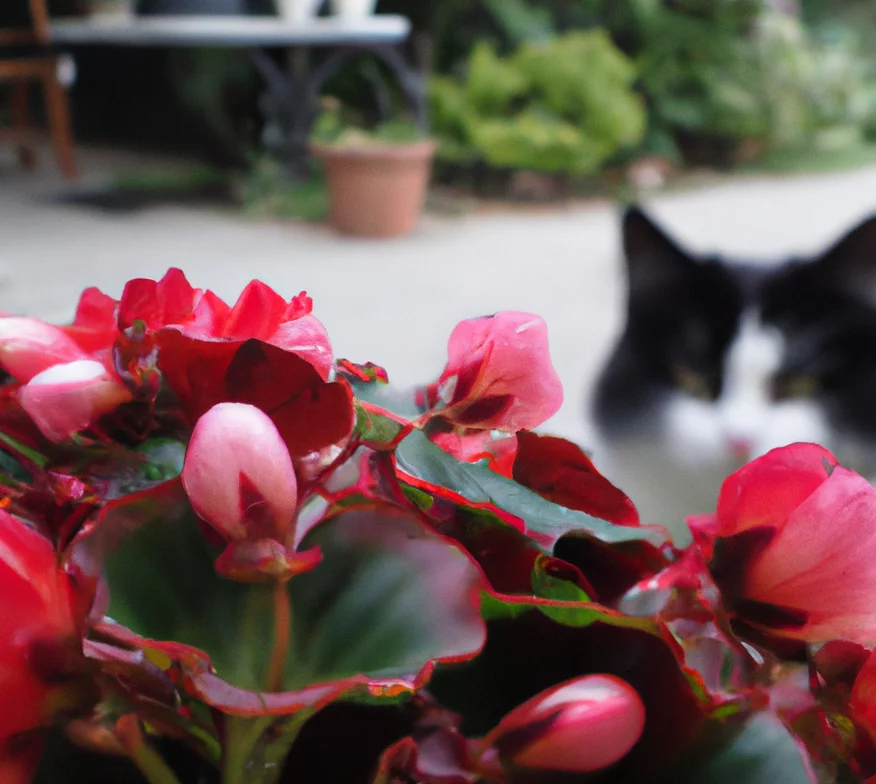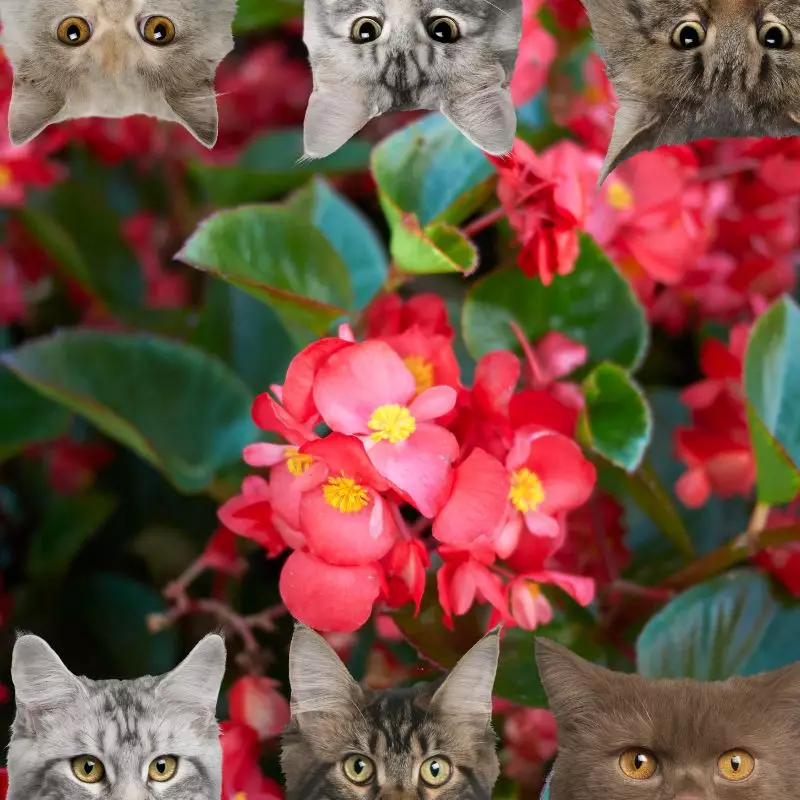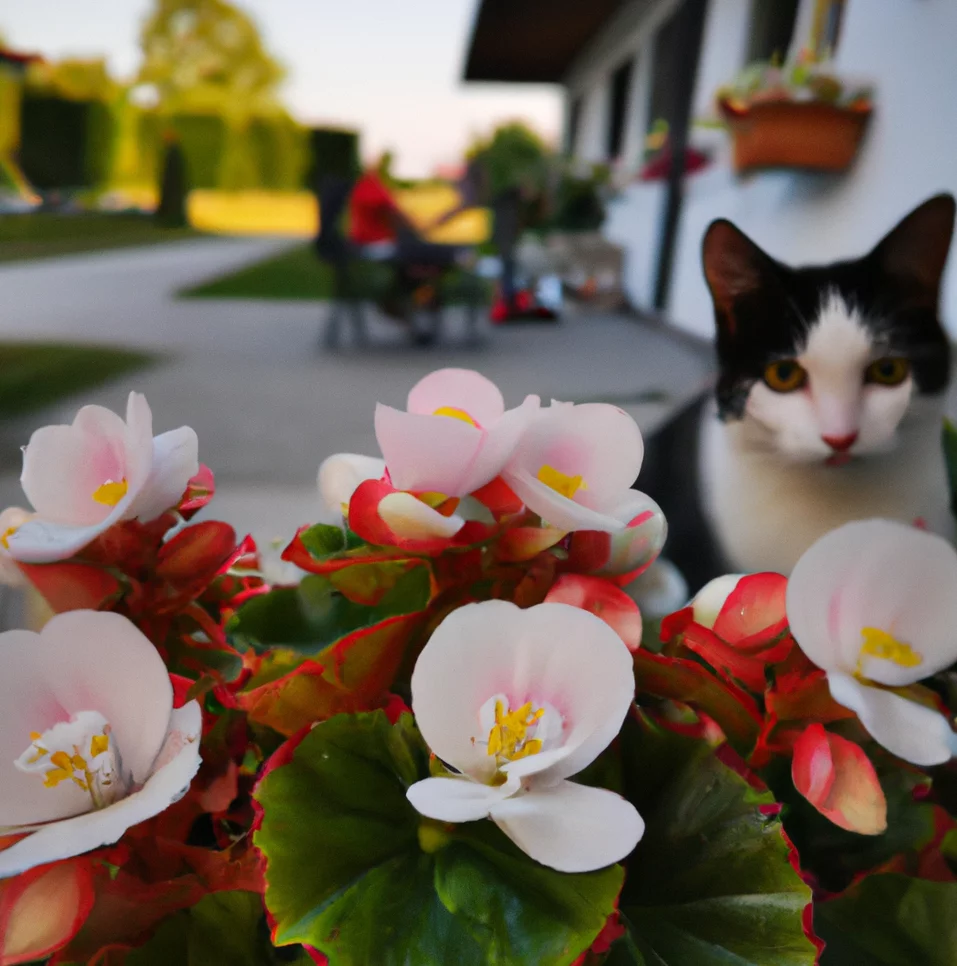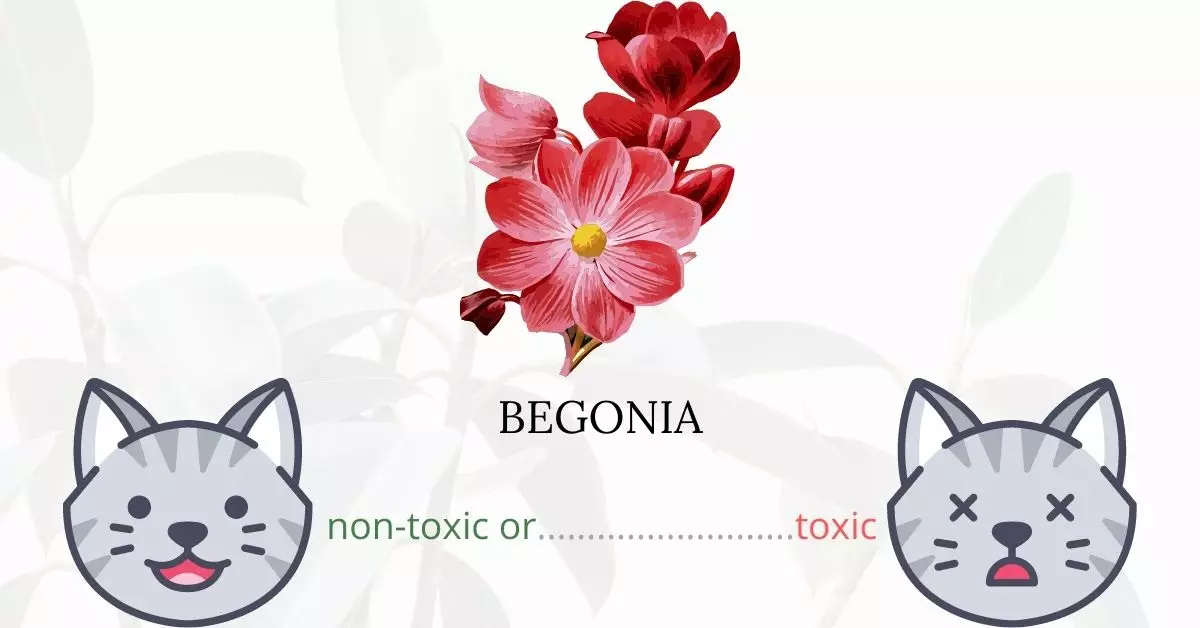Yes, begonias are toxic to cats. These common ornamental houseplants, while prized for their beautiful flowers, pose a risk to our feline companions. Begonias boast over 1,000 species and 10,000 hybrids, most of which contain harmful oxalate crystals. When ingested by cats, these crystals can induce symptoms such as vomiting, salivation, and even kidney failure.
This article was meticulously written in collaboration with a team of experienced DVMs (doctors of veterinary medicine). With their expertise and our extensive research from high-authority sources like the ASPCA and PetMD, we are committed to providing readers with accurate and up-to-date information concerning the potential risks associated with various plants, particularly the begonia and its effects on cats.
What Is Begonia?

Begonias, which belong to the Begoniaceae family of primarily succulent plants, are extensively distributed in subtropical and tropical moist climates, particularly in South and Central America, Africa, and southern Asia. Their distinctive features include usually four-colored tepals in two pairs of varying sizes, as well as their lovely flowers, which come in a variety of colors including pink, red, yellow, and white. On different varieties, the frequently lopsided, alternate leaves likewise vary in shape and color.
Clinical Signs of Begonia Poisoning in Cats

Ingestion of begonia may produce noticeable symptoms which may cause discomfort to your cat. Once you notice these begonia poisoning symptoms, you should immediately take your cat to the veterinarian to avoid progressing complications.
- Excessive salivation
- Sore in the mouth and redness around the mouth
- Swelling of the tongue and mouth
- Lips licking and grimacing
- Vomiting
- Dehydration
- Swallowing difficulties
First Aid and Treatment of Bead Plant Poisoning in Cats

Usually, begonia poisoning symptoms are only mild and your cat will recover in about 48 hours. A prescription diet, on the other hand, may be recommended by the veterinarian since it is gentler on the stomach. Anti-inflammatories will be also required to minimize throat swelling and maintain a clean airway. Additional medications may be needed to preserve the stomach lining. Fluid therapy may be required as it also helps remove any oxalate crystals that are still retained in the digestive tract.
Recovery from Begonia Poisoning in Cats
Cats who have been poisoned by begonias usually recover quickly, with most instances being healed in two weeks or less and no need for additional treatment.
The veterinarian may opt to temporarily place a feeding tube if the cat’s esophagus has been seriously injured. This will keep the cat from straining the digestive tract’s wounded tissues by swallowing, enabling them to heal on a liquid diet.
Follow your veterinarian’s advice on post-treatment care. Give your cat plenty of fluids and make sure your feline friend is cozy and comfortable at home while he or she is recuperating.
Prevention of Begonia Poisoning in Cats
While it is inevitable for cats to experience plant poisoning as they are curious in nature, you can minimize their risk of exposure by keeping them safe and occupied indoors. Make sure you do not have begonias inside your house or in your backyards. Install fences and safety nets around your house as necessary to prevent your cat from straying away.
Check more in our video:
If you love plants but have cats at home, check out these lists:





